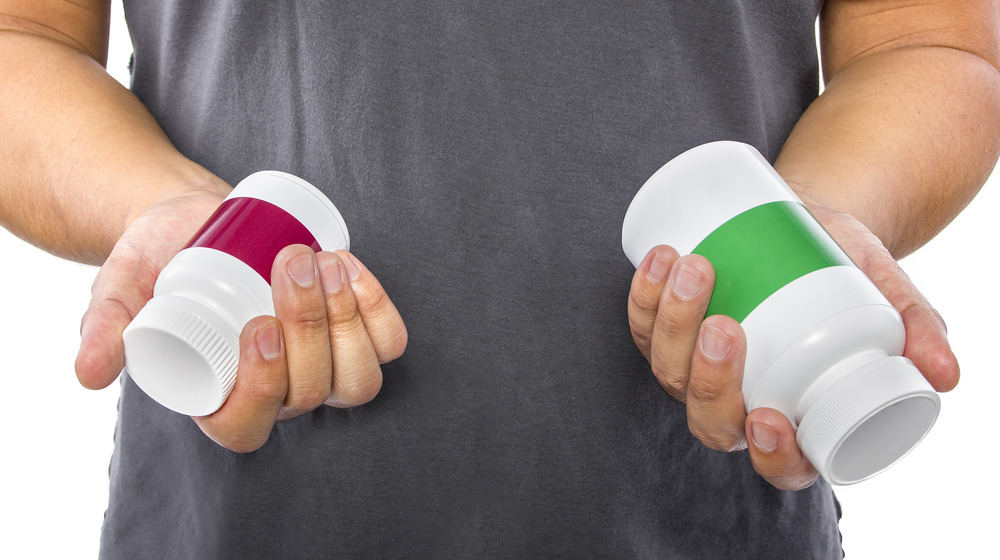The Real Difference Between Ibuprofen And Naproxen Sodium
When you're suffering from a headache, backache, cramps, or fever, all you want to do is grab something to alleviate the pain. That's why you likely have two of the most common pain relievers in your medicine cabinet at the ready — ibuprofen and naproxen.
The two are known as nonsteroidal anti-inflammatory drugs (NSAIDs), and they are relatively new therapies. Ibuprofen came on the scene in 1969 and naproxen followed in 1976 (via NCBI). You most likely recognize these drugs by their familiar over-the-counter brand names Advil and Aleve (via Healthline). The cause of inflammation is often due to chemicals our bodies produce called prostaglandins. They promote inflammation essential for healing, but on the flip side, the inflammation can often result in aches, pain, or fever (via MedicineNet). This is where NSAIDs come in.
Okay, so you have ibuprofen or naproxen in the medicine cabinet, and you have faith in both of them. But what's the difference between them? Are they both effective for any kind of pain?
How to know whether to take ibuprofen or naproxen
As they are both NSAIDs, ibuprofen and naproxen are similar. One substantive difference is the length of time they each provide relief. Naproxen lasts eight to 12 hours, where ibuprofen lasts four to six hours (via The Independent Pharmacy). According to WebMD, naproxen is effective in relieving headaches, muscle aches, and dental pain, and ibuprofen reportedly relieves similar issues (via NHS.UK). As far as which drug to choose when? Well, after a 20-year review, it was determined that choosing one over the other was ultimately based on personal preference (via SingleCare.com).
One serious point to make clear is that if you're thinking of taking ibuprofen and naproxen together — don't. Doctors strongly advise against this, as it can create issues in the gastrointestinal tract (via Drugs.com).
Both drugs also come with their list of risks and side effects, and each may have higher or lower risks compared to the other, depending on your own specific health history (via GoodRX). However, they are generally considered safe, as long as you use them in accordance with the instructions on the label (via MedicalNewsToday).

